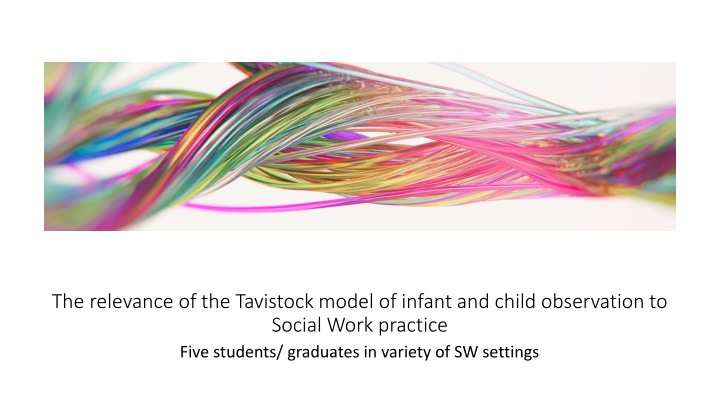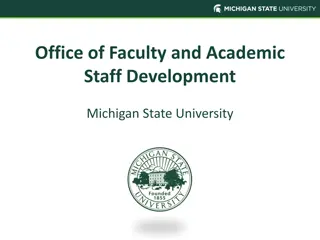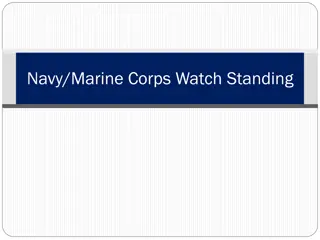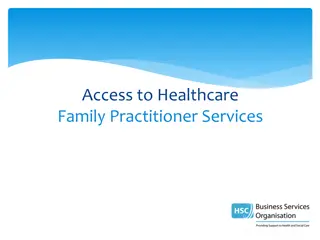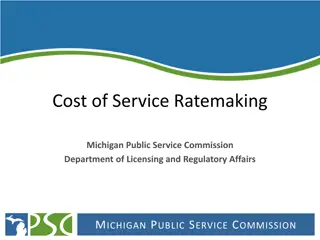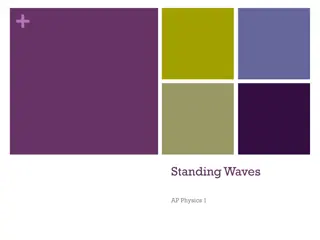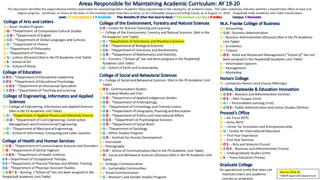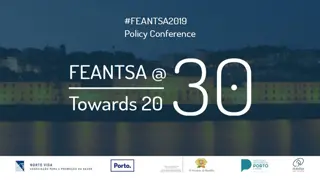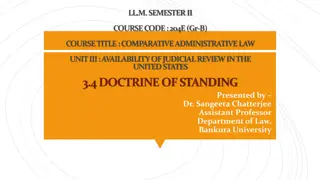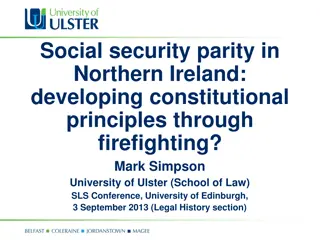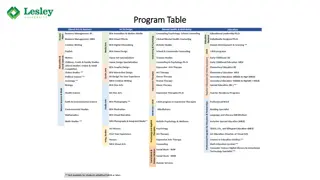Academic Standing Guidelines at Northern Michigan University
Guidelines for academic standing at Northern Michigan University cover aspects such as GPA requirements, probation, suspension, and dismissal. Students are provided with information on maintaining good standing, consequences of probation and suspension, as well as the process for appeals and agreements.
Download Presentation

Please find below an Image/Link to download the presentation.
The content on the website is provided AS IS for your information and personal use only. It may not be sold, licensed, or shared on other websites without obtaining consent from the author.If you encounter any issues during the download, it is possible that the publisher has removed the file from their server.
You are allowed to download the files provided on this website for personal or commercial use, subject to the condition that they are used lawfully. All files are the property of their respective owners.
The content on the website is provided AS IS for your information and personal use only. It may not be sold, licensed, or shared on other websites without obtaining consent from the author.
E N D
Presentation Transcript
The relevance of the Tavistock model of infant and child observation to Social Work practice Five students/ graduates in variety of SW settings
Tavistock Courses Belfast Working With Children, Young People and Families: A Psychoanalytic Observational Approach (M7N Belfast) Perinatal and Early Years Work: A Psychoanalytic Observational Approach (M9N Belfast) PG Cert/Dip/MA PG Cert/Dip/MA
HISTORY OF THE MODEL Introduced by Esther Bick as part of the formal curriculum in child psychoanalytic psychotherapy training at the Tavistock in 1948 Anna Freud and Dorothy Burlingham had been observing children in the 1941-1945 in the war nurseries - the impact of loss and separation. These observations informed Bowlby s work. Infants without families 1944 Anna Freud Centre (1962) Mother-baby observations Young Child Observation
Infant Observation Helps students- Conceive vividly the infantile experience of child patients/ clients Increase understanding of non-verbal behaviour and play and behaviour of child who neither speaks nor plays Will help students get a more detailed and developed history Increase knowledge of infants and provides unique opportunity to find out for themselves how relationships in a family emerge See first -hand how a mind is formed and see theory unfold in a live way
METHOD Once weekly observations, for one hour, in the family home, for first 2 years. Ordinary family setting Family not known to observer Detailed accounts written up afterwards, from memory and discussed in seminar group
